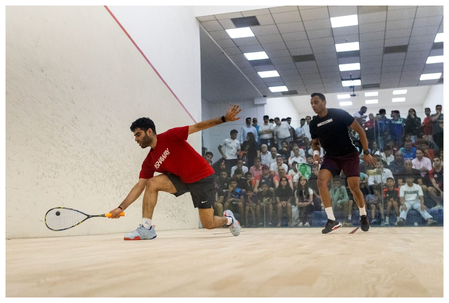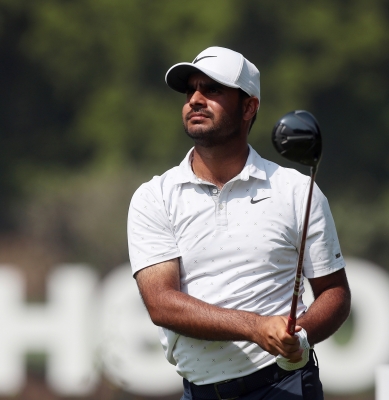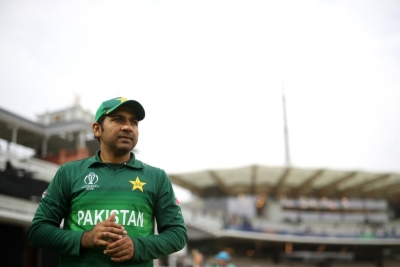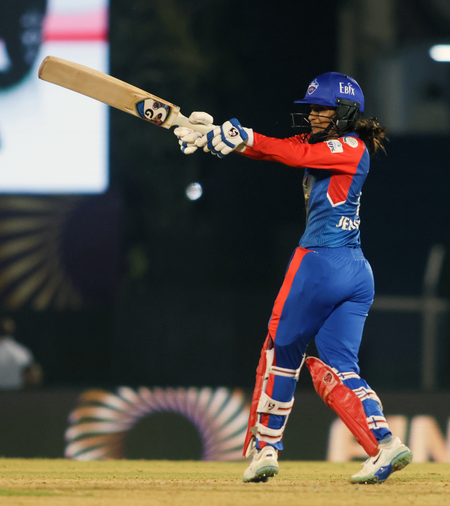
Lausanne (Switzerland), May 15 (IANS) The International Olympic Committee (IOC) on Wednesday launched the “1 in 100 Million” campaign which aims to shine a spotlight on the 36 inspirational athletes who have faced incredible challenges to reach their start line, and called on everyone to get behind the team when they represent the over 100 million displaced people on the world’s biggest sporting stage.
The campaign began with a graphic-novel-style short film that introduced the formidable sporting talents and unique personal stories of Refugee Olympic team athletes, including Cindy Ngamba (boxing), Dorsa Yavarivafa (badminton) and Ramiro Mora (weightlifting), and Refugee Athlete Scholarship-holder Kavan Majidi (judo), whilst also drawing attention to the shocking scale of the global refugee crisis.
When the team made its debut at Rio 2016, there were close to 60 million displaced people globally. On the eve of Paris 2024, that number has now soared to well over 100 million and is still rising – that’s around 1 in 70 people living on our planet (UNHCR, 2023). Putting all the forcibly displaced people in one place would create the 14th most populous country in the world – and that population is increasing all the time.
Cindy Ngamba, boxing, Refugee Olympic Team, said: “Qualifying for the Olympic Games – that means everything to me. Each member of the Refugee Olympic Team has different backgrounds and life experiences, but sport unites us – we’re a family and we’re going to go out there, support each other, and show the world what we are can do.”
The film was crafted utilising cutting-edge AI technology. An integral aspect of the film’s production was the engagement of contributors affiliated with the refugee community, such as illustrator and author Engy Jarrouj, a refugee from Syria at creative studio Framestore. The film also features an original piece of music produced by recording artists Che Lingo and Manon Dave.
The film is part of a broader initiative that gives the team its own unique identity, nodding to the design of the first-ever Refugee Olympic Team emblem – a unifying symbol bringing together diverse athletes. The emblem features arrow markers, signifying the shared experience of their journeys, and a heart – originating from the Olympic Refuge Foundation (ORF) logo, to represent the belonging the team hopes to inspire and that athletes and displaced people around the world have found through sport.
Ramiro Mora, Refugee Olympic Team, weightlifting, said: “I will be so proud stepping out wearing the Refugee Olympic Team emblem. To represent myself, my journey, but also the thousands of people who find themselves in similar circumstances as I did. I hope seeing us walk out at Paris 2024 will bring hope and inspiration to people everywhere”.
Founded by the IOC for the Olympic Games Rio 2016, to ensure that all athletes, no matter their circumstances, have the opportunity to compete in the Olympic Games, the Refugee Olympic Team is managed by the ORF.
Appearing at the Olympic Games for the third time, the Refugee Olympic Team will represent the over 100 million displaced people around the world and aims to be a symbol of inclusion and inspiration for everyone affected by displacement.
The Refugee Olympic Team for Paris 2024 was announced on May 2, and is made up of 36 athletes, hosted by 15 National Olympic Committees (NOCs), competing across 12 sports: athletics, badminton, boxing, breaking, canoeing, cycling, judo, sport shooting, swimming, taekwondo, weightlifting and wrestling.
The composition of the team is based on several criteria including, first and foremost, each athlete’s sports performance, and their host country refugee status as verified by UNHCR, the UN Refugee Agency. Consideration has also been given to a balanced representation of sport and gender, as well as the spread of countries of origin.
The ‘1 in 100 million’ film was directed by William Bartlett at Academy Award-winning animation and visual effects studio Framestore and produced by the IOC in collaboration with creative agency Gravity Road.
–IANS
hs/




